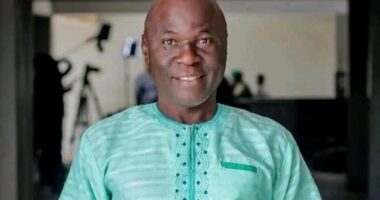There was a much-married king and there was his favourite queen. They lived together happily till the queen decided to extract from her king the price of her fealty. The aging king died of shock, causing a great disruption in his kingdom. That, in worldly terms, is the story of King Dashrath and Queen Kaikeyi. Age had made Dashrath mingy towards Kaikeyi, and a hurt maternal pride caused Kaikeyi to become brutally self-centered. Matrimony does not allow otherness. Dashrath in his youth was a handsome, carefree and brave prince. A sportsman of sorts, he loved his chariots and hunting. ‘Dashrath’, literally, ‘ten chariots’, was a sobriquet he had earned because of the numerous chariots he owned and his ability to drive them in all the ten directions. His birth name was ‘Nemi’. Prince Nemi had also acquired the skill of shooting any target, guided only by the sound that it made. His marksmanship would prove his undoing. Once, out on hunting by the river side, he heard a sound coming from behind the bushes. It was as if a wild elephant were drinking water from the river. Instantly, he shot an arrow in that direction. A piteous cry rent the serene environment. The prince’s arrow had mortally wounded Shravan Kumar. The sound had been made by the pitcher the young man was filling from the river to take to his blind and invalid parents. As Shravan lay dead, the bereaved old parents put a curse on Dashrath that one day, he too, like them, would die of grief for losing his son. In time, Dashrath inherited the Raghu throne of Kausala, which was a prosperous domain, with Ayodhya as its capital. Unlike his son, Ram, he did not subscribe to the idea of monogamy. That was his compulsion rather than indulgence. He married several times to beget an heir, a son. He had three primary wives: Queen Kaushalya, Ram’s mother, Queen Sumitra, the mother of twins Lakshman and Shatrughan, and Queen Kaikeyi, Bharat’s mother and Dashrath’s most favourite consort. Queen Kaikeyi, the only daughter of King Ashwapati of the Kekeya Janapad, was exceptionally beautiful and blessed with the brains, brawn and courage of a princess of a ‘warrior tribe’ (see M. Monier-William’s ‘A Sanskrit-English Dictionary’, p.308). She had seven brothers, including her twin, Prince Yudhajit, with whom she had a special bond. Upon her marriage with King Dashrath, she accompanied him to battles. Once, when, in support of devas he was fighting the army of Rakshas Shambar, he got seriously wounded. Kaikeyi saved his life driving his chariot away from the battle field. She did it not once but twice. Beholden to her for his life, King Dashrath told her to ask of him two boons of her choice. Queen Kaikeyi responded fulsomely that she would remind him of his word when the time came (Balmiki Ramayan, Ayodhya Kand, Canto 9(xiii-xviii). She bided her time. As the years passed by, the royal household of Ayodhya flourished happily. All the four princes were now married. Prince Yudhajit of Kekeya, who attended the weddings, sought Dashrath’s permission to take along Bharat back home to meet his maternal grandfather, King Ashwapati. Shatrughan too would accompany Bharat. Raja Dashrath was too willing to accede to Yudhajit’s prayer. Then, one day, it struck Dashrath that he had grown old and it was time for him to declare his eldest son, Ram, who had all the attributes of a noble king, as his heir apparent. Sant Tulsidas evokes the moment thus: Sitting on his throne, King Dashrath looks into the mirror to straighten his crown, and notices that – Shravan smeep bhaye sit kesa/Manhu jarathpanu as updesa// Nrip jubraju Ram kahun dehun/Jeevan janam laahu kin lehu// The hairs near his ears have turned grey, as if the old age is counselling him – O King! Why don’t you benefit from your birth and existence by giving Ram the title of crown prince? Ramcharitmanas, Ayodhya Kand,1(iv) Dashrath took all the preliminary steps to give his idea a practical shape. He held a durbar to seek the opinion of different feudal lords and the public of the realm. He invited friendly rajas to witness the ceremony (though he peculiarly omits to invite Raja Janak, Sita’s father, and Raja Ashwapati of Kekeya, Kaikeyi’s father, with whom the young prince was staying during the fateful period (see Balmiki Ramayan, Ayodhya Kand, Canto 1(xlviii)). He requested Muni Vashisht and Vamdev to initiate the arrangements for the ceremony of installing Ram as the crown prince. He summoned Ram to his chamber to disclose to him his decision and Ram in turn broke the news to his mother, Queen Kaushalya, as well as to his favourite brother, Lakshman. Dashrath did all that but adroitly kept the crucial information from Queen Kaikeyi. Kaikeyi got it instead from her chamber-maid, the hunchback Manthra, who had received it from Ram’s nanny (Balmiki Ramayan, Ayodhya Kand, Cantos 1-7). A person of Kaikeyi’s disposition could be anything but petty-minded. On hearing the news of Ram’s likely elevation as the crown prince, she not only rewarded Mantra with jewels, but was prepared to grant her boons in addition. When Manthra persisted in inciting her to advance the claim of her own son, Kaikeyi insisted that she supported Ram because of his merits. Yet, Manthra succeeded eventually to convince Kaikeyi express her strong resentment against the proposed ceremony and force Dashrath to declare Bharat as his heir rather than Ram. But why did poor Manthra have to act that way? Sant Tulsidas says that it was Saraswati, Goddess of Wisdom, who muddled her mind – Namu Manthra mandmati cheri Kaikeyi keri/ Ajas petari tahi kari gai gira mati pheri// Kaikeyi had a dumb-witted maid-servant by the name of Manthra. Making her a basket of infamy, Saraswati addled her head and went away. Ramcharitmanas, Ayodhya Kand,12 Indeed, the numerous connotations of the adjective ‘manthar’ – ‘stupid’, ‘crooked’, ‘devious’, and ‘base’ (Oxford Hindi-English Dictionary, 2015, p.779) – wholly apply to Manthra. How could such a handicapped person bring an abrupt reversal of her mistress’ stance is a puzzle. Neither Sant Tulsidas, nor Rishi Balmiki offer any justification for Queen Kaikeyi’s ruinous behaviour that followed after Manthra had poisoned her ears. They leave it at that. Rishi Balmiki though describes at some length (Balmiki Ramayan, Ayodhya Kand, Cantos 10-14) the sad details of Kaikeyi’s tantrums in her boudoir and Dashrath’s fall from a proud scion of the Ikshvakus and her loving husband, to an abject, weepy subservient falling at her feet, begging for reason and mercy. But Kaikeyi does not budge from her two demands in return of the two boons he had promised her in their youthful days – Nav panch ch varshani Dandkarinyamashritah// Cheerajindharo dheero Ramo bhavtu tapsah/ Bharto bhajtamady yaurajymkantakam//// Calm-natured Ram may go the Dandkaranya forest to spend there nine and five (that is, fourteen) years, clothed as an ascetic in bark-garment and deer-skin. Bharat should get free-of-trouble position of crown-prince today itself. Balmiki Ramayan, Ayodhya Kand, Canto 11(xxvi-xxvii) Kaikeyi’s demands sounded a death-knell for Raja Dashrath. He would be shamed before the whole world if he changed his decision regarding the heir-apparent on the penultimate day of celebration, when everyone else was expecting that Ram was being invested with the authority. Particularly, the queen’s demand for Ram’s banishment to the forest for fourteen years dealt a deadly blow to the old Dashrath since the doting father could not think of living even for a day without having his eldest son, Ram, by his side (Kaikeyi, though, cunningly phrased the duration of Ram’s banishment as ‘nav panch ch varshani’ – nine-and-five, instead of fourteen years, as if to soften the blow). No amount of Dashrath’s remonstrations of love, or his pleadings and neither for that matter his invectives could move Kaikeyi to change her mind. Eventually, Kaikeyi had her way. Dashrath, in his shell-shocked condition, was not able to tell Ram of the drastic change of circumstances. It was she who told him of that in a cut and dried manner. Ram, accompanied by Sita and Lakshman, left the royal palace for his fateful journey to the Dandakaranya, as Dashrath lay on his death-bed. In his last moments the king tearfully recalled to Queen Kaushalya the curse that Shravan’s helpless parents had placed on him. He died around mid-night yearning for a glimpse of his favourite son, Ram (ibid, Canto 64). Kaikeyi proved to be the immediate cause of Raja Dashrath’s tragic end. For that, as Sant Tulsidas rightly says, “Garin sakal Kaikeyihi dehin…” – everyone curses Kaikeyi (Ramcharitmanas, Ayodhya Kand, 155(iv). But does she really merit such outright calumny? Only the wise can tell.
Subscribe
Login
0 Comments





